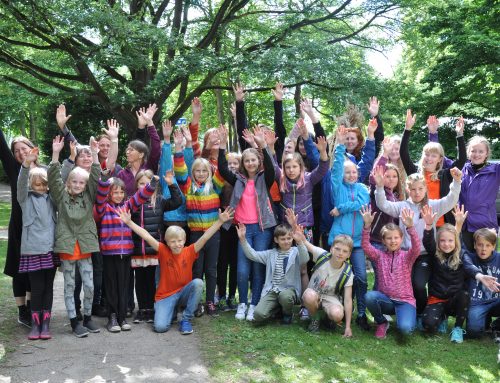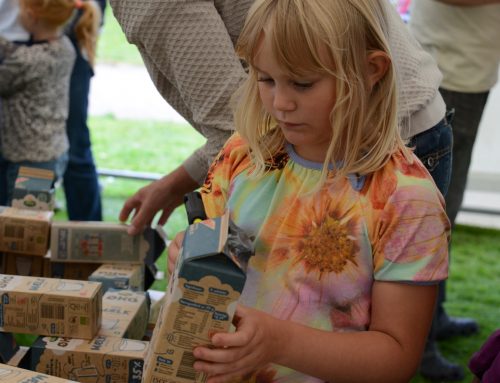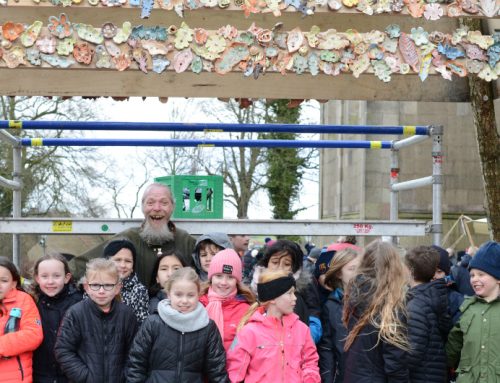Why does the food you eat affect nature, people and animals in places like the North Pole and India? How would you feel if you got up in the morning and didn't know if you were eating? And what would a vegetable pie sound like if it were a piece of music? That's what we'll be working on in Food Music.
In our everyday lives, we use many different products and materials. We eat food, we build houses, we talk on mobile phones, we wash clothes, we drive cars, the food we eat is often transported on planes from all over the world, and we go to the cinema or the funfair.
Through all these activities, we consume many different natural resources. Some of them in the direct form of food that we eat, or as materials in, for example, houses, cars, furniture and machines. Our consumption of food and other products creates waste in both production, transport and consumption, which puts a strain on our environment.
Around the world, we have become increasingly aware that we need to think about how we live our everyday lives in order to take better care of our planet and each other. There are many things you can do in your everyday life to live more sustainably.
UNITED NATIONS SUSTAINABLE DEVELOPMENT GOALS
Some of those with a particular focus on sustainability are the United Nations. The UN stands for the United Nations and is an organisation made up of independent states that have decided to come together to work for, among other things, more peace and equality and less need and poverty throughout the world.
Among other things, the UN has decided to fight for us humans to take better care of our planet and each other. The UN has therefore adopted a plan of 17 Sustainable Development Goals. Among other things, we must eradicate poverty and hunger, ensure that there is more equality between people throughout the world and achieve a sustainable world economy. The plan is to achieve the SDGs by 2030. There are a total of 17 SDGs and 169 targets.
Denmark is also a member of the UN, and we have therefore promised that Danes will help to achieve the 17 SDGs. You can also help, for example by thinking about how you and your family live your everyday lives.
In Food Music we will primarily work on SDG 2 "End hunger" and SDG 12 "Responsible consumption and production".
WORLD GOAL 2: Stop Hunger
All children and adults should be able to eat healthy and nutritious food. The world produces enough food for everyone, but it is unevenly distributed. That is why over 800 million people still go hungry today. That's about 1/8 of the world's population. Lack of food is closely linked to poverty. When people go hungry, it is not necessarily because there is no food, but because they cannot afford to buy enough food.
Undernutrition and malnutrition are both consequences of poor diet. In malnutrition, the body does not get enough food to function normally. Malnutrition occurs when the diet you eat is too one-sided and your body lacks nutrients.
GOAL 12: Responsible consumption and production
We must ensure sustainable consumption and production. If we are serious about ensuring a sustainable future, we need to change our consumption and production in particular.
Humanity's resource consumption is enormous, but much of it is actually not needed at all. In addition to food, we produce a lot of other things that may not be needed and are not always produced in proper ways or under proper conditions. This means not only that too many natural resources are used, but also that the production and transport of goods can damage the environment both locally and globally.




